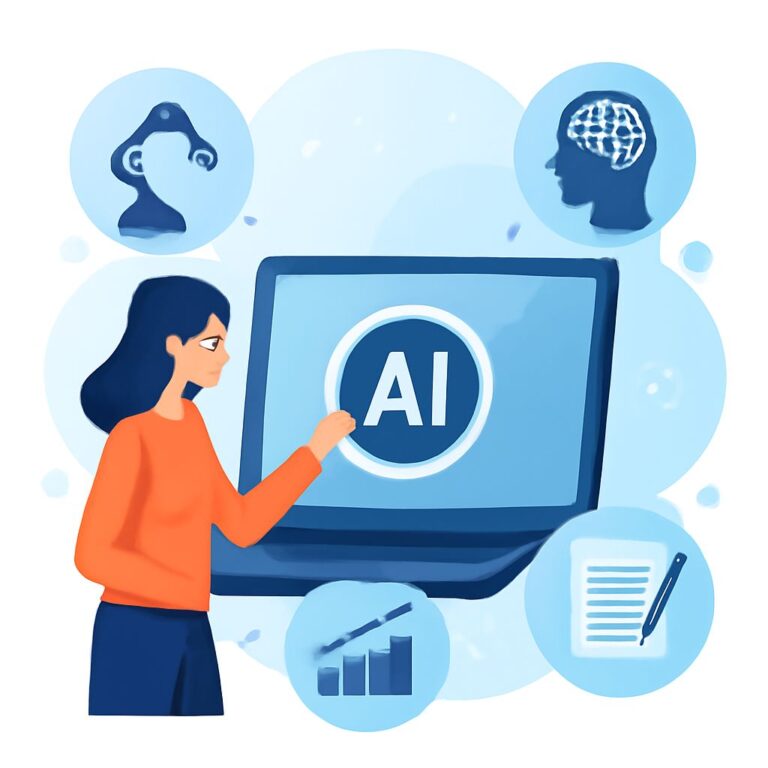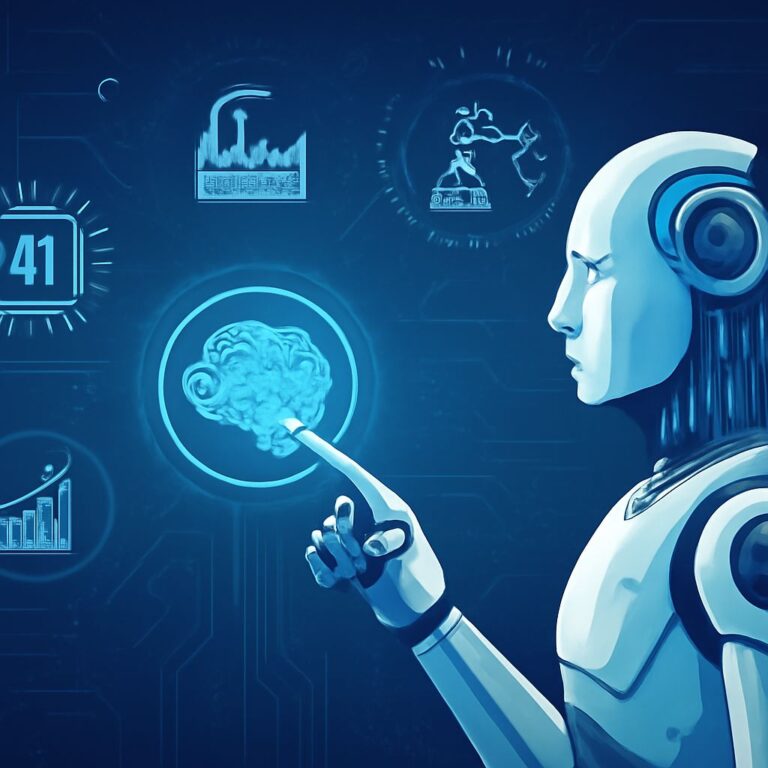Table of Contents
The Transformative Impact of AI on Businesses
Artificial Intelligence (AI) is revolutionizing the way businesses operate, offering unprecedented opportunities for innovation and efficiency. By leveraging AI tools, companies can streamline operations, enhance decision-making processes, and unlock new avenues for growth. In this article, we will explore the key benefits and applications of AI tools in the business sector.
AI tools are designed to mimic human intelligence by learning from data, recognizing patterns, and making decisions. These capabilities are increasingly being harnessed by businesses to improve product offerings, optimize marketing strategies, and enhance customer experiences. But what does this mean in practical terms? Let’s delve deeper.
The Benefits of AI in Business
Integrating AI tools into business processes offers numerous benefits:
- Increased Efficiency: AI can automate routine tasks, allowing employees to focus on more strategic initiatives and improving overall productivity. This not only speeds up operations but also reduces the likelihood of human error.
- Data-Driven Decisions: By analyzing large datasets, AI provides insights and forecasts that help businesses make informed decisions and stay ahead of the competition. With real-time data analysis, businesses can pivot their strategies effectively in response to market changes.
- Personalized Customer Experiences: AI can tailor recommendations and communication based on customer behavior, enhancing satisfaction and loyalty. This personalization is key to building strong, lasting customer relationships.
- Cost Reduction: By automating processes, businesses can significantly cut down on operational costs while maintaining high-quality outputs.
AI Tools Revolutionizing Business Operations
Several AI tools are reshaping business landscapes:
- Chatbots: These AI-driven virtual assistants provide 24/7 customer support, reducing response times and improving service quality. Chatbots also gather valuable customer interaction data that businesses can use to refine their services.
- Predictive Analytics: AI algorithms predict future trends and consumer behavior, enabling businesses to proactively adjust strategies. Using past and present data, businesses can optimize inventory, staffing levels, and marketing campaigns.
- Robotic Process Automation (RPA): RPA utilizes AI to perform repetitive tasks, reducing errors and freeing up human resources for complex roles. This shift allows businesses to allocate their workforce to more strategic, high-value tasks.
- Machine Learning Algorithms: These algorithms improve themselves over time, providing businesses with advanced models for forecasting, quality control, and product recommendations.
These are just a few examples of how AI tools are being applied. The potential is vast and continues to expand as technology advances. As AI evolves, new tools and techniques will undoubtedly emerge, pushing the boundaries of what’s possible in business.
Real-World Applications of AI in Various Industries
AI is not limited to one area and spans across various sectors:
- Retail: AI helps retailers manage inventory, optimize pricing strategies, and deliver personalized shopping experiences to customers.
- Healthcare: AI tools aid in diagnostics, patient management, and personalized medicine, improving both clinical outcomes and operational efficiency.
- Finance: AI in finance empowers fraud detection, enhances risk management, and automates trading processes, ensuring faster and more accurate transactions.
- Manufacturing: AI systems optimize supply chains, enhance production processes, and predict maintenance needs to reduce downtime and enhance productivity.
The Role of AI in Strategic Business Planning
AI’s ability to analyze massive amounts of data and generate insights is particularly beneficial for strategic planning:
- Market Research: AI tools can process consumer data from various sources to identify emerging trends and predict future market demands.
- Competitive Analysis: Businesses can use AI to monitor competitors’ activities and adjust their strategies accordingly.
- Resource Allocation: AI provides data-driven recommendations for optimizing resource allocation, thus maximizing efficiency and ROI.
Adopting AI: A Step-by-Step Approach for Businesses
Integrating AI into existing business models requires careful planning and execution. Below are key steps in adopting AI:
- Understanding Needs: Identify areas within your organization that could benefit from AI, such as those requiring repetitive tasks or data analysis.
- Partnerships and Collaborations: Engage with AI vendors or consultancies to gain insight into existing tools and how they could be customized for your needs.
- Pilots and Testing: Begin with small-scale pilots to assess the impact of AI tools before broader implementation.
- Training and Development: Invest in training employees to ensure they can effectively work alongside AI tools and understand their outputs.
FAQ
How can small businesses benefit from AI tools?
Small businesses can leverage AI tools to automate administrative tasks, gain deeper insights into customer preferences, and engage more effectively with their audience. AI helps level the playing field, allowing smaller businesses to compete with larger counterparts effectively.
What are the initial steps for businesses to incorporate AI?
Businesses should start by identifying inefficient processes that could benefit from automation or data analysis. Partnering with AI vendors for tailored solutions is also advisable. It’s crucial to ensure that business objectives align with AI capabilities, ensuring a targeted approach to AI integration.
What challenges do businesses face when implementing AI?
Businesses must overcome challenges such as data privacy concerns, high initial costs, and the need for skilled personnel to manage AI tools. Moreover, potential resistance to change from employees can be anticipated, requiring effective change management strategies.
Can AI replace human jobs in businesses?
While AI can automate certain tasks, it is unlikely to replace jobs entirely. Instead, it complements human roles by handling repetitive tasks, allowing humans to focus on more creative and strategic areas. The collaboration between AI and human intellect opens new job categories and opportunities, emphasizing the importance of education and skill development.









